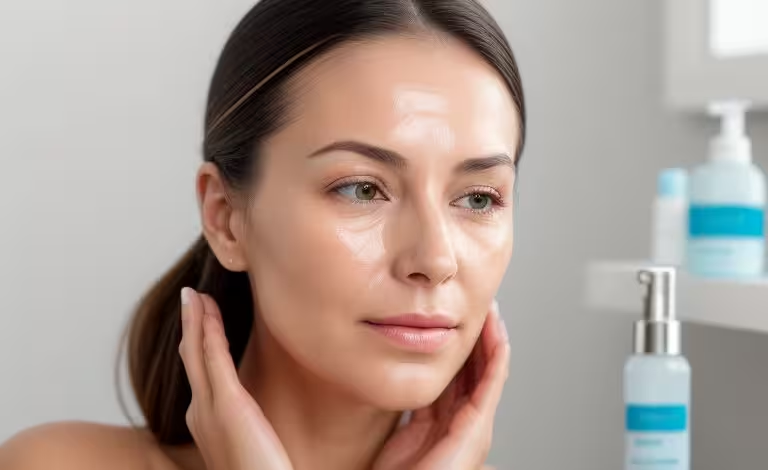
HydraFacial Ruined My Skin: What Went Wrong and How to Recover
HydraFacials have gained immense popularity as a go-to treatment for achieving clear, glowing skin. However, not every experience is perfect, and some individuals have found themselves unhappy with the results. If you're one of those saying, “HydraFacial ruined my skin,” this article is for you. We’ll explore what might have gone wrong during your HydraFacial, how to address the damage, and steps to restore your skin’s health.

Understanding the HydraFacial: What Is It?
A HydraFacial is a non-invasive skincare treatment that uses a patented device to cleanse, exfoliate, extract impurities, and hydrate the skin with serums. It’s praised for being gentle and effective, making it a favorite for many seeking instant results without downtime.
Common Complaints: How Could a HydraFacial Ruin Your Skin?
While most people enjoy the benefits of a HydraFacial, there are instances where the treatment can lead to unexpected and undesirable outcomes. Common complaints include:
- Irritation and Redness: Some people experience prolonged redness and irritation after a HydraFacial, especially if they have sensitive skin.
- Breakouts: Paradoxically, a treatment meant to clear pores can sometimes trigger breakouts or worsen acne.
- Dryness or Tightness: Despite being a hydrating treatment, some people report feeling tight, dry skin afterward.
- Increased Sensitivity: The skin may become more sensitive to skincare products or sun exposure post-treatment.
- Texture Changes: Uneven skin texture, bumps, or rough patches can appear after a HydraFacial.
What Might Have Gone Wrong?
Several factors could contribute to an adverse reaction to a HydraFacial:
1. Incorrect Treatment for Your Skin Type
Not all skin types react the same way to a HydraFacial. If you have sensitive, acne-prone, or rosacea-affected skin, the standard treatment may be too harsh. The suction used for extractions and the acids in the serums can irritate or inflame sensitive skin, leading to redness, breakouts, or discomfort.
2. Improper Technique
The skill of the technician performing the HydraFacial plays a crucial role in the outcome. If the procedure is done too aggressively or the device is mishandled, it can cause trauma to the skin. This might result in excessive irritation, broken capillaries, or even damage to the skin’s natural barrier.
3. Allergic Reaction
The serums used during a HydraFacial contain a mix of active ingredients, including acids, antioxidants, and peptides. While these are generally beneficial, they can cause allergic reactions in some individuals, leading to redness, swelling, or hives.
4. Pre-existing Skin Conditions
If you had underlying skin conditions like eczema, rosacea, or psoriasis, a HydraFacial could exacerbate these issues. The treatment might strip the skin of natural oils, triggering flare-ups.
5. Post-Treatment Care Neglect
Proper aftercare is essential following a HydraFacial. Neglecting sun protection, using harsh skincare products, or skipping hydration can all worsen skin issues and prolong recovery.
Steps to Recover Your Skin After a Bad HydraFacial Experience
If you feel that a HydraFacial has damaged your skin, don't panic. Here are some steps you can take to help your skin recover:
1. Give Your Skin a Break
Avoid using any harsh skincare products immediately after the treatment. This includes exfoliants, retinoids, and strong acids. Stick to gentle, hydrating products that support your skin’s natural healing process.
2. Moisturize
Keeping your skin hydrated is crucial. Use a fragrance-free, non-comedogenic moisturizer to restore your skin’s barrier and prevent further dryness or irritation.
3. Soothe with Aloe Vera or Chamomile
Natural soothing agents like aloe vera or chamomile can help calm irritation and reduce redness. Apply a thin layer of pure aloe vera gel or chamomile cream to the affected areas.
4. Stay Out of the Sun
Sun exposure can worsen irritation and lead to hyperpigmentation, especially if your skin is already compromised. Wear broad-spectrum sunscreen with at least SPF 30, and try to avoid direct sunlight until your skin has fully healed.
5. Consult a Dermatologist
If your skin shows signs of severe irritation, persistent redness, or other concerning symptoms, consult a dermatologist. They can assess the damage and provide treatments, such as prescription creams or anti-inflammatory medications, to speed up recovery.
6. Hydrate from the Inside Out
Drink plenty of water to keep your skin hydrated from within. A healthy diet rich in vitamins and antioxidants can also support skin repair.
7. Consider Professional Treatments
If your skin doesn’t improve with home care, you might need professional treatments like LED therapy or a soothing facial from a licensed esthetician. These treatments can promote healing and restore balance to your skin.
Preventing Future Issues: What to Consider Before Your Next HydraFacial
To avoid another negative experience, consider the following before booking your next HydraFacial:
- Consultation: Ensure a thorough consultation with your esthetician before the treatment. Discuss your skin type, concerns, and any past reactions to skincare treatments.
- Customization: Ask if the HydraFacial can be customized to suit your skin type. A skilled technician can adjust the settings and choose serums that are gentler on sensitive skin.
- Patch Test: If you have sensitive skin, request a patch test before applying any new products to your face.
- Post-Treatment Care: Make sure you understand the aftercare instructions and follow them diligently to protect your skin.
Saying “HydraFacial ruined my skin” can be a disheartening experience, but it’s essential to remember that skin issues can often be resolved with the right care. Understanding what might have gone wrong and taking steps to support your skin’s recovery can help you regain your confidence and improve your complexion. If you're considering another HydraFacial or any other skincare treatment in the future, take the time to research, consult with professionals, and listen to your skin’s needs to ensure a positive outcome.


